Interview: The Oranges Band (w/ Roman Kuebler) [Part 2]
Audio clip: Adobe Flash Player (version 9 or above) is required to play this audio clip. Download the latest version here. You also need to have JavaScript enabled in your browser.
MP3: The Oranges Band – Art Star from The Oranges Band Are Invisible (2008)
If you haven’t read part one, check it out. And celebrate The Oranges Band tonight at Comet Ping Pong or the Ottobar on Satuday.
Here’s part 2 of my interview with The Oranges Band’s lead singer, Roman Kuebler. A couple things of note: for our DC readers, the band will be bringing its anniversary celebration to Comet Ping Pong tonight. On the sadder side of things, City Paper recently reported that drummer Dave Voyles, who had been with the band since the start, has left for personal reasons. Lee Ashlin is taking his place behind the kit on tour.
This portion focuses more on the band’s three long players, the anniversary show (which I accidentally slipped up and called a reunion show, not my finest moment) and what lies ahead for the band.
AS: How do you look back on All Around, your first LP?
RK: One of my strong memories of that record is, when we finished… with all this– This was our first professional approach. So we went somewhere, to a studio, and we were there for two weeks, working everyday on this record. We had nothing when we showed up; we had to have an album when we were finished. And I had most of the songs, but I didn’t have all of the songs. And we were flying people in to do some guest spots here and there, trumpets and all this stuff. We were really ambitious. I wanna say it was a little bit overly ambitious, because we wanted to make this pop album.
‘Cause at the time it was all Strokes, all rock, all of this. And we were getting a lot of Strokes comparisons with our earlier records, — although I was into The Strokes, I wasn’t influenced by them. I really just wanted to do this trashy garage stuff, but everyone said: “Oh, that’s like The Strokes.”
So all right, we’re gonna make this pop record. So we went through the process of making it, had its ups and downs. I needed to write a few songs while I was there, which I did. They came out pretty good. And the memory that I will take from All Around is that: Everyone had left, for some reason. And I stayed maybe one day longer. Everyone was flying to different places. I think it was Thanksgiving. I think people were flying to their destinations. Half the people had been done for a whole week, so they left a whole week ago.
And anyway, it was just me, driving home from Michigan to Baltimore, and I had in my hand the album that we made. And I must have listened to it, 5, 6 times, and I was just loved it. Can’t believe we did this, you know? It sounds good, the songs are cool. And I was really happy about it. That’s kind of what I remember about it.
I guess maybe I had learned more later. And now when I go back, “Oh, I could’ve done this differently. I could’ve done that.” You know? There’s a lot that I would have changed or would still change. But at the time I was really happy about it.
AS: It definitely feels like there’s a lot of songs on there I guess that are– I wanna say sort of relationship songs, I don’t know if that makes it a relationship record, but…
RK: That was when I was just kind of flailing on, riffing vocals and just trying to come up with something and then working that out. That album, to me, was a lot of symbolism. There’s a lot of Blade Runner references.
AS: Really?
RK: Yeah. Like that’s kind of what I was really into. There’s a few, at least. I remember trying to make it really mechanical, like “My Mechanical Mind.” That was a song about people as machines, you know?
AS: I guess I was thinking more along the lines of “I’m Still Right… Still.”
RK: Yeah, yeah.
AS: “North Carolina.”
RK: “North Carolina” is a song about my sister.
AS: Oh, okay.
RK: In fact, two songs about my sister on there. One is “Oh, Madalene,” which is my first niece. And my sister went to school in North Carolina, so. Those two songs, which are lighter, softer songs, are both about my sister– or kind of relate to my sister. And I like those, and they’re some of the more genuine things I’ve ever done. The execution, especially on “North Carolina,” was not the best. I feel like I could have done it better. But it’s pretty good.
But the other song “Opticalize, I Can See” is another robot song.
AS: You mentioned the sort of Blade Runner themes and the robot songs. Was there an overarching theme do you think?
RK: Not necessarily. In making albums, each one has certain themes, that when I was stuck for lyrics, I would kinda like say, “Okay, I’m gonna go this and see what I can get out of it.” Blade Runner was on that one.
AS: Yeah, why Blade Runner?
RK: It’s just one of my favorite movies. I actually studied it in college, so I felt like I knew a lot about it. There’s just incredible themes of humanity and, you know, the will to live, in so much as these robots have assumed humanity and have this will to live. And so I kind of got into this idea of the android, and the person who’s being built. And “Opticalize” was meant to feel like this really mechanical [in a machine-like noise:] duh-chichun-chichun-chechun. Like this assembly line of people putting eye balls into bodies. Sometimes I just wanted to paint a picture, not even telling a story. And you would never know that to hear the lyrics and stuff, but that’s always what I heard. And then like on the chorus [sings:] “All around/I can see all around” was like the eye balls open up and then the person can see, looking around. And then, that’s just my interpretation of it. That was the thing about kind of being loose with the lyrics is that, I was able to interpret it, just like someone else might be able to.
So those were the major Blade Runner themes. There might be a couple more that I can’t remember at the moment. I can’t remember exactly what’s on that album.
“Finns for Our Feet” was supposed to be like a fantasy tale. It’s pretty self-explanatory, people living under water.
See, I have these argument songs. “I’m Still Right… Still” is an argument song. The story behind that song is two people, one’s in Heaven and one’s in Hell or something.
AS: Really?
RK: That was my idea. I can’t remember how it goes. “I’m still catching up with you/But not so fast and only cause you want me to” is like the person in Hell saying, “I’m gonna catch you yet,” you know? “And I’m still right. I don’t give a shit what anyone says.” “Whether I’m down here…” Is it down here or up here?
AS: That’s kind of unique imagery. Do you remember how you conjured that up, or it just sort of came to you?
RK: Yeah, I don’t. I don’t remember. I think I was just like, riff off on some lyrics and started to be like, That’s kind of what this is doing. That’s what’s happening here. That’s kind of cool, you know? And same thing with all the “Finns for Our Feet” stuff.
Then there was the time where I said, I wanna make this really weird scenario. But then “Keep Your Teeth” was like this fighting song, which, also, “Success” was a fighting song. “Still Right” was an argument song, because these people– They’re conversation songs, where people are generally fighting. This, like, aggressive, physical fighting.
AS: Did that always come that naturally for you, writing lyrics?
RK: No, because at some point I wanted to be more articulate and tell stories better and get ideas across better. Like I said, no one would ever know these things are about these things unless I would tell them this is my idea of what’s happening.
So that was the challenge on The World and Everything In It. That was the challenge to me was to say, “Okay, I’m going to do better at this. I’m going to make more concrete imagery.” And it worked. I used my life. I used my experiences to do that, and The X-Files. That was that album: The X-Files and living on a beach when I was in high school.
AS: It definitely has a summery vibe to it, which I guess would explain the beach.
RK: Yeah. Yeah, yeah. I mean, I was doing that really consciously, and it was just kind of reminiscing about my life at the beach, which I just [pause]. What is it when you hold it up? Not fantasize, but, you know, you kind of immortalize…
AS: You built it up in your mind.
RK: There you go. You built it up. It’s just the greatest time. We had so much fun down there. And the sun– it was just great. So I was just remembering those times, which is why it’s kind of got this nostalgic feel to it. I was also really back into surfing at that time, because I had seen Riding Giants which is this documentary about riding huge waves by Stacey Peralta, I think. And so, I just really enjoyed surf rock and all this stuff. There’s a couple of obvious, really surf rock references. And I was just trying to do all of those things. And I was just like, “Yeah, I’m gonna make a beach record.” And then inside that, there’s all this really weird, a couple of really weird things, like “The World & Everything In It” and “Evil’s Where You Want It to Be,” like all these ploppings, dark little spots on this sunny kind of thing.
AS: “Drug City,” clearly.
RK: “Drug City,” yeah.
AS: Especially. I imagine that was about here.
RK: Sure, but in a really generic way. Those are pretty generic lyrics. They roll off pretty good. It’s also about traveling, you know how you kind of, maybe separating. Separate versus [travel], two totally different things.
And I remember I got the one line, I was going to Atlanta– We were going to Atlanta on tour and there was a back up, just red lights as far as you could see. And it felt like– I felt like I got this image that Atlanta, the city, was the heart and all the veins were leading in, you know? And then there were veins leading out. And so that’s: “‘Red lights are devils, they’re’ something ‘leading you in/White lights are angels, they’re calling you back again.’”
So it’s got this kind of [sings] “City’s a whore/ Nobody sleeps alone.” So there’s two of these things where it’s kind of like putting these ideas on top of each other. And I was just separating ideas. I would come up with something over here, and then add this other idea over here, so they were kind of intertwined. So that’s what that song, to me, was– it kinda intertwined all these ideas.
And I was trying to do Paul Simon, like, all the backing vocals and all that stuff. It’s all just one big Paul Simon. Which, I actually think it does pretty well.
AS: Yeah. Absolutely.
RK: But yeah, so, I actually had another experiment on that album, which was: I had grown frustrated with people reviewing albums and all saying the same thing about them. And I said, I’m gonna make a beach album, and I’m gonna tell ‘em it’s a beach album. Everyone’s gonna write about the beach album. No one is gonna talk about these weird little bits in there about space, and aliens and all this stuff. And no one did.
But really, the other theme on that album is the ambition, where I was coming to terms with my ambition, which was realizing that being overly ambitious is dangerous. And so “Atmosphere,” that’s what that is. It’s about a person– that’s not me. That’s actually Fox Mulder [Laughs]. I was just watching X-Files all the time at that point. And I just really related to those characters– their ambitions, their higher purpose, their drive. I just thought, they’re not rewarded for it, you know? Neither am I, necessarily. But in the end, what if they succeed? What if they find out the truth? What if no one believes them? Who cares. They’ve got this thing, you know?
AS: You use science fiction in a lot of these themes I guess.
RK: Definitely, definitely. I mean, I think it’s visual. It’s just these visual things that I respond to. I don’t read books. I just watch TV. And I’m just visual. And so, when I need something, I go to a visual place and I say, “It would be nice to have all those little things kind of repeating throughout.” I needed some place to go, I’d just just kinda play along with five things and just kinda said, “Alright, what do I do with them?”
AS: On that record I feel like the melodies were definitely stronger. How did you go about writing all that?
RK: I would sit up every night listening to the songs ’cause we recorded the album– 15, 16, maybe 17 songs –and recorded all the basic tracks and began the process of layering stuff on top. And where we started and where we ended were vastly different, so much so that when I gave the record to Dave, who played the drums and pretty much wasn’t really involved with all that, all the rest of it, I felt like he felt maybe he was listening to another band or something.
But, you know, I had fundamentally changed a lot of the things. And that’s one of the things I was really trying to do: get lyrics, melodies. There was a song that really followed the guitar line, it was “I’ll Never Be Alone.” It went [sings] Da-nuh-nuh-da-dun-dun-dun. That’s the guitar line, and I had a melody go in [sings a little faster] Da-nuh-nuh-da-dun-dun-dun. And I just go, Okay. Then I was like, Change that. I just kinda like, and then I go, [sings] “You-look-like-you-have-seen-a-dun-dun-da-nuh-nuh.” Which, I don’t know, I just was screwing around, and that’s what I came up with. And it was better, much better, and you know, the whole thing just worked. I just really tried hard.
AS: You said that ambition sort of burned you out near the end, but the results you can’t argue with, really.
RK: No, I agree. I mean, that’s the thing– I don’t regret it or anything like that. I’m really happy about it. There’s still, I hear things and I’m kinda like, “Why didn’t I change that?” But for the most part, I think about that album in a way that I can enjoy it, which is another thing that I wanted to do. I wanted to be able to enjoy something that I did. Before then I was just highly critical, you know? So I would listen and just be like, [in a voice] “Oh God, I can’t” [stops voice] “I can’t listen to this crap.” But that one, for the most part, 75 percent, I’m like, [voice returns] “Yes, yes” [disappears again] “I can’t believe it.”
AS: And on the last one obviously the one thing that record critics like myself have picked up on is that you make a lot of references to the sort of older Baltimore scene. Was that mostly just a nostalgic trip?
RK: No, it was really specific. It was sort of a way to– what was happening with the scene, people kind of getting popular, I felt like there was this situation where people were not recognizing what had happened before. I had specific conversations where, because I’ve been around music for a long time and a lot of Baltimore music is my favorite music of all time, and I would ask people working at the club, you know all the younger people, ask them whether they knew this. It was just this ignorance towards what had happened, you know, five years ago, six or seven or eight years ago. And it frustrated me, because I just felt like that’s a problem in this town, where people don’t respect the history in that way, and it’s hard for them to kind of show the support. In DC that doesn’t happen. You ask someone about Rites of Spring, they know who Rites of Spring is. They know where Rites of Spring went. They know about the history.
It’s possible that I’m kind of speaking cynically, because I don’t know a lot of the young people. But I just think that that’s a– People who come up in DC, play in DC, people that I know certainly, understand that their scene came from somewhere. And I didn’t think Baltimore felt the same way about its music. And it was really frustrating.
So my original idea was just to say, if I say some of these words, and if I take some of these lyrics and I put them in these places, people want to know what I’m talking about. And they go look it up, and they find out that this is what it’s about, that will be cool, you know? And if I say, you know, Ottobar after hours, I’m really talking about the old one. But the word Ottobar is appearing and someone says, “What is Ottobar?” That’s more for anybody, people here, people there. It’s just, “What is that?” They find out that this is what it is, it’s a real place.
Then there’s these really subtle references people wouldn’t get. I had this idea that I was writing an album for– at most, 200 people, like, would understand a lot of these things that had happened– putting in the lyrics from The Lee Harvey Keitel Band. Just using their songs in my song, just to have someone go, “Hey, I know that. Cool.”
Just narrowing the scope on the whole album, just saying, you know, I want less people to really understand it. But I still want it to be accessible, still catchy or whatever. They’re not that specific that they’re exclusive. If you understand it, you go, “Ah, I got it.”
Memory Lane, you know? “Do You Remember Memory Lane?” That was the name of the club in ’97-’98. That was the club. It’s where everything happened. I’ve seen more good shows there than I can, you know. Crazy good stuff. And there’s still a lot of people around here who were there, who really remember it. And so, to hear that, “I do remember Memory Lane.” That’s the question: Do you remember Memory Lane? Yes or no? If yes, then you’re in. You can understand it. If not, I hope you can find something else that you like, you know?
So it’s just stuff like that. And even with the clubs, like the Rev, same thing. And “Gordon’s Nightclub” is about a placecalled the Rev. The lyric is: “What happened to the Rev? It was here when I left, now it’s turned into Gordon’s Nightclub.” Because I used to go the Rev and then I moved away for a couple years and I came back, and it was Gordon’s Nightclub. Pretty direct in the reference. So again, same thing, just trying to say, “Ah, the Rev. I remember the Rev. It was cool.” You know? “It’s good stuff there.”
AS: Do you feel like the scene has gotten better in that regard? ‘Cause, I mean, you hear about all these bands that are just sort of nurtured, like I guess a Beach House or Future Islands, you know, they moved from North Carolina and now they’re signed to Thrill Jockey. And all these acts that seem to be, I don’t know, it seems like they’re here, and they get a lot of support, and then they sort of make it bigger, I guess.
RK: I don’t know Future Islands. But no, I mean, I obviously have mixed feelings about it in the sense that, I wish I have been, and recently I have not been, tied to the scene. And it’s not conscious, it just happens, you know? But, you know, it’s not like I’m bitter, or jealous of these people doing that. I think it’s great, you know? But I knew Victoria when she was in her old band, the Dagger Hearts, and– you know, I still know her [laughs] –I remember her telling me about the band she was gonna start. I remember being like, “This doesn’t sound like it’s gonna be as good.” They were into like raw, wild music, the Dagger Hearts. I don’t know if you ever heard or had any experience at all.
AS: No, I didn’t actually.
RK: It was like a wild rock group with keyboard drums. And it was cool, I loved it. And then she wanted to do this other thing that was more mellow, and she was like, “What do I do?”
“But you’re in a really good band,” I remember telling her that. “Yeah, but what about this band? It’s really good.” But they’re taking off, so…
AS: The only reason I bring that up as an example is just, the support, I feel like, has definitely gotten better. And by virtue of seeing these bands all the way through their stages, they will be able to– I mean, they won’t be the same references you’re making, but they will have been there from the start.
RK: Sure. Yeah. There was always some kind of roadblock to building that seven years ago that just kind of broke through. You know, it’s been a long time. It’s the Ottobar being here a long time. It’s somewhere being bigger, having a bigger room to play, bringing in more out-of-town acts. It’s WTMD, which was not at all– There was no radio for so long, no way to reach people in the county. It was very difficult. Clubs were opening and closing. All those things were keeping it small, ’cause it was hard to follow. Now it’s easier to follow, and I think that there’s more opportunity for bands.
I don’t know, it’s weird. I feel like we– I feel like, in some ways, this just doesn’t relate to us at all. ‘Cause it’s not our scene, you know? I just don’t think we can convince the people who go to see those bands that [pause] that we have anything to offer. Maybe that’s cynical.
AS: How unfortunate is it for you, then, that this era, this earlier era that you were a part of and you were so plugged into then, doesn’t get the credit that it deserves?
RK: I don’t know. It’s hard to say how that would fundamentally change it. If people were getting famous, it’d be a totally different thing. And, you know, ’cause there was an attitude here that, “Say what you want, but you just can’t fuck with this scene.” Great bands. Great people. We get loud. Everything is crazy. There were bands that were coming here that knew people that could attest to like, “Baltimore’s a town that rocks. It’s a wild place.”
But, again, here we’ve got, uh [pause] Wham City. People are gonna look back at that and flip their minds, they’re gonna freak. They’ll be like: “Remember that shit? That was fucking insane.” And I would go to that stuff, but I just felt like it wasn’t for me, you know? It’s not just because I like rock bands and songs and I just didn’t like that music. But I wasn’t feeling negative about it. It felt exclusive to me, like, this isn’t kind of my thing. But I think it’s cool.
So they’re going to have their own experience of it, you’re right. They’re going to have seen through a certain thing. I guess the only part that’s gonna be different is the part where they get famous, or did well– it sounds something derogatory by saying someone is famous, but that’s not the way I intended it –I guess that’s the only difference, really. But they’re all gonna have those experiences.
You can only get so famous in Baltimore anyway. It’s a town that doesn’t– the culture of celebrity is really frowned upon. John Waters hangs out, you know? He chills. And people go up to him and say, “Hey. What’s up?” And he says, “Nothing. How you doing?” You know? And it’s not weird. I think people accept that to a certain extent, and you’re saying, Alright well, we don’t want to be LA or New York. We don’t want to be the place where someone walks in the door and the crowd parts and it’s, “What can I do for you?” I just think of Baltimore, as a fundamental construction, there’s something we don’t do.
Which, again, plays into that idea about giving bands their props, this, that or the other thing. A certain amount of it is, like, Well, they were here, they were gone? Who cares? They were great. Big deal, now they’re gone. Like, what’s happening now? And I can get down with that. I like that attitude.
AS: The one thing I’ve always felt about this scene in my experience…
RK: Did you grow up here?
AS: Yes. But uh…
RK: Where did you go to high school?
RK: Cool.
AS: But uh, when I was younger, my friends were in a ska band, so I just sort of saw there shows, which were often times in the basements of churches.
RK: That’s definitely the high school experience, I think.
AS: Yeah, yeah.
RK: I didn’t get into music until I was mid-way through college, or I guess my freshman year of college I started to do a few bands and stuff like that. I wasn’t here, I was somewhere else.
AS: When I was in college, I was in College Park. And just, I couldn’t find– I didn’t really try enough, as I should have –there was no way I could find somebody to go to Baltimore to see such-and-such band. They’d say, “Who?”
RK: That’s an awkward spot.
AS: Yeah, definitely. But as soon as I’ve become more engrained, I’ve definitely noticed you’ll look around when you’re at a show and see all different people from all different bands in the scene. And they always come there to support each other, and I guess that’s sort of always been the case.
RK: Always been the case, yeah.
AS: That goes back to that cult of celebrity thing you were just saying.
RK: Which is great, in the sense that New York is not like that. That’s not been my experience at least. Everyone is out for themselves. It’s just too big. You know what? There’s 50 clubs. How can there be a scene around 50 clubs, or whatever? There’s just no scene. It’s just everyone trying to break it, you know? And trying to get everyone to be interested in them. Not to say that there aren’t pockets of scene, I guess, but I think in general, that’s the way it is. So Baltimore is the right size that it can be a scene still, which is really cool.
AS: Shifting gears, what can we expect for the reunion, for the shows?
RK: Well, it’s not a reunion.
AS: Why did I say reunion? It’s an anniversary show. I apologize.
RK: Well, the thing is people will likely get the sense that it is or have the impression that it is, because we haven’t played since 2008. The reason that we haven’t, though, is because Dave hurt his wrist, and then he hurt his finger. We had a tour planned, but we can’t go out for those reasons.
AS: Yeah, that was just a slip. I want that one back.
RK: It’s no big deal. But no, I mean, I’m just addressing it because it’s not the first time I’ve heard it. Although, you know, we didn’t play in 2009 at all, and that was a little bit of a conscious thing, like, Well, Dave’s hurt. You know, he needed a few months to get better. Then he broke his finger and needed a couple more weeks, and I just thought, Let’s just chill on this for a minute. We’re not gonna get it back. We lost the momentum from that. It’d be hard to build it back up.
In some ways it feels a little bit like a reunion, but it’s really not. It’s the 10-year anniversary, and it doesn’t feel like anything’s gonna be different. I had these ideas that I would do something different about playing certain songs or getting people to come up and play with us, but now that we’re in the practice room, we’re practicing, it feels like it always has. And we’re just the band that we are now, we’re not that band that we were then, so we can’t do all the same songs, you know? The songs that are the best are the ones that we’ve written recently and then, you know, a lot of The World and Everything In It. But we’re gonna hit everything, probably. But it’s kind of interesting to me that it’s sort of working out in that way, that it might not be wildly different than the show we did a year and change ago. We’re playing the same songs, and probably the same people are gonna show up [laughs].
But I don’t know. You know, I’m hoping– I’ve kinda stopped taking the approach that there’s gonna be this one thing that changes people’s minds about The Oranges Band and started to just kind of consider that it’s a long term phenomenon. I think if someone were to take a look at our body of work, they’d say, “Wow, this is impressive.” And that will be the foundation that we’re able to build upon.
For me it’s just a way to kind of mark this moment of, like, We’re proud that we’ve been doing this for as long. And with all the thing things that we’ve been through, it’s something. We’re happy to kind of mark the occasion for ourselves. It’s the type of thing where Baltimore is the type of place where, if you don’t tell people, they’re not gonna know. So everybody, this is what’s going down.
AS: And then what’s beyond that?
RK: Well, the tour rolls out before that, so we’re gonna do that. Then we’re doing the anniversary shows. We don’t have anything immediately planned after that. But ugh, I guess just more of the same, man.
AS: Any plans for maybe another record at some point?
RK: Yeah, I mean, I have tons and tons of material. You know, I do my solo stuff, too.
AS: Right, you’ve got a subscription service.
RK: Yeah. I’m actually restarting it. So, you know, I’m just always writing all the time. So I have a group of material that I think is gonna be the basis for the next Oranges Band record. We’ll see. We haven’t really figured out how to approach it. You know, we’re just doing the same thing, where we’re gonna work on some new tunes. We’re gonna try and get people interested. We always just throw it out there, try to get people to get on the train. And it feels like we’ve been successful at reaching a lot of people. So it feels pretty good. It feels like we have plenty of issues to keep wasting our time. [Yelps] Whoo!
AS: I don’t know about that [laughs].
RK: It’s just a laugh, really.
AS: Once I saw that on the Ottobar calendar I was really excited for it.
RK: Awesome. Oh good. It’s hard for me to kind of– I don’t know… Like I said, it’s always been hard, we never got a lot of response from people, so I don’t know if people are interested or are gonna be really pumped for this or not. You know, we haven’t played in a year and a half. But because Baltimore is the way it is, I think a lot of people are gonna be like, “Aw, did I miss that? Oh well. I’ll catch them next time.” Or maybe that’s just the ten years speaking [laughs]. Or hopefully it’s the start of a different kind of attitude about it.
Related posts
- Interview: The Oranges Band (w/ Roman Kuebler) [Part 1]Photo credits: Natasha Tylea (1-3), Greg Szeto (4-5) The Oranges...
- Interview: !!! aka Chk Chk Chk (w/ Nic Offer)Aural States: So you guys formed in 1996; that was...
- Interview: The Pains of Being Pure at Heart (w/ Kip, Peggy, Alex)[Audio clip: view full post to listen] MP3: The Pains...
- Interview: The Homecoming Queens (w/ Jon, Tom, Rich & Phil)Ed. Note: It’s no secret that I have an affinity...
- Thrushes Interview (w/ Casey, Rachel, Ryan & Anna)This past Monday night I had the distinct pleasure of...



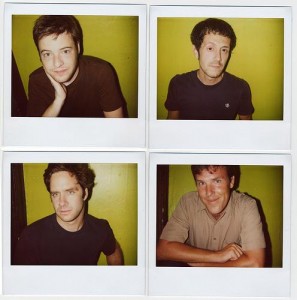
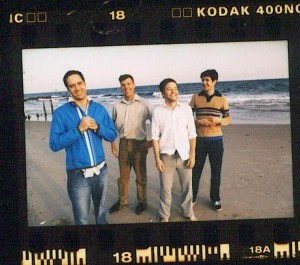
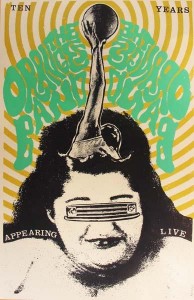


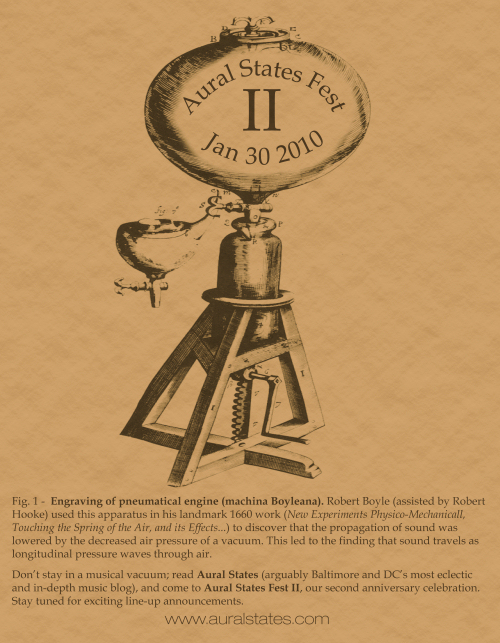
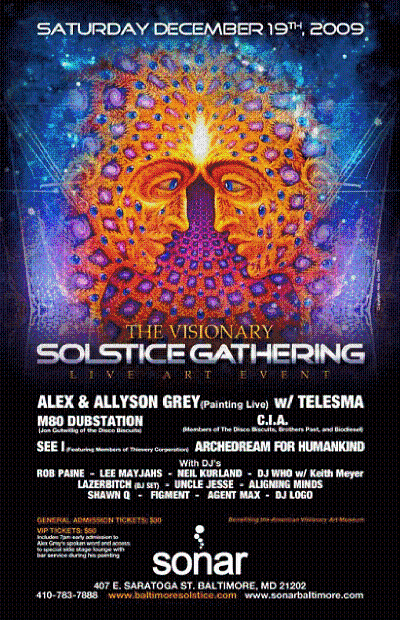









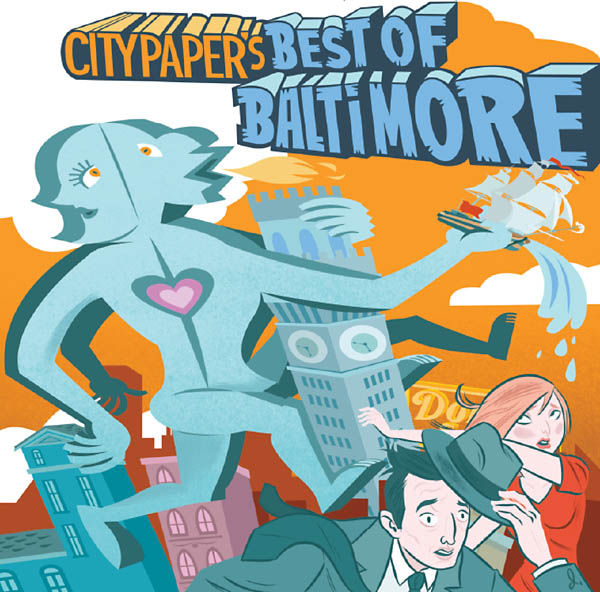
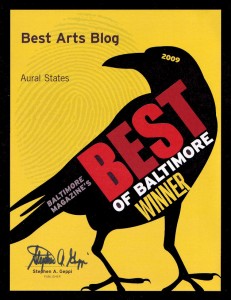


 Double Dagger: Masks EP
Double Dagger: Masks EP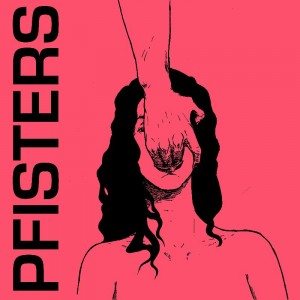 Pfisters: Narcicity
Pfisters: Narcicity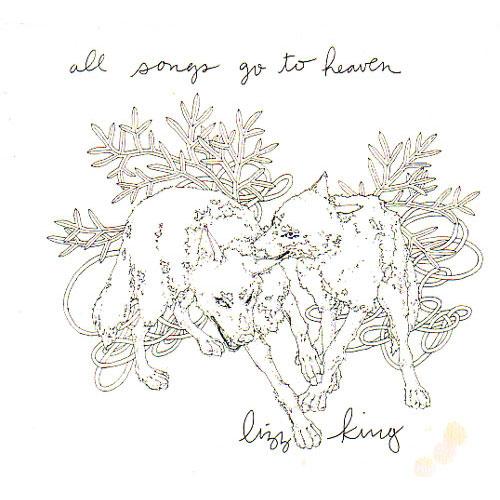 Lizz King: All Songs Go To Heaven
Lizz King: All Songs Go To Heaven Imperial China: Phosphenes
Imperial China: Phosphenes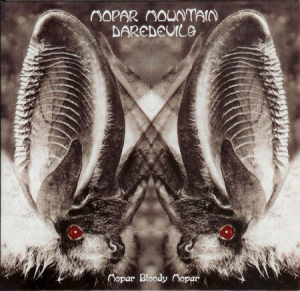 Mopar Mountain Daredevils: Mopar Bloody Mopar
Mopar Mountain Daredevils: Mopar Bloody Mopar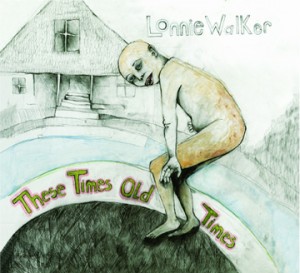 Lonnie Walker: These Times, Old Times
Lonnie Walker: These Times, Old Times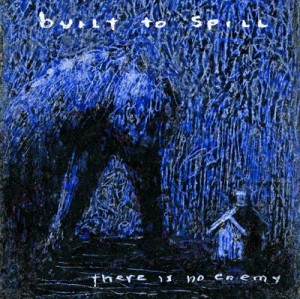 Built to Spill: There Is No Enemy
Built to Spill: There Is No Enemy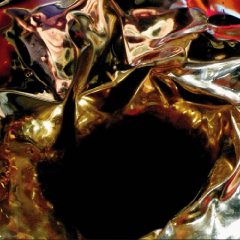 Hypnotic Brass Ensemble: Hypnotic Brass Ensemble
Hypnotic Brass Ensemble: Hypnotic Brass Ensemble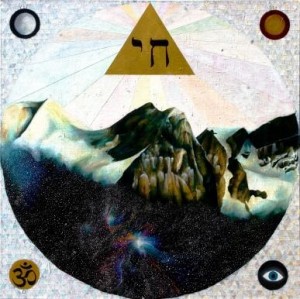 Secret Mountains: Kaddish EP
Secret Mountains: Kaddish EP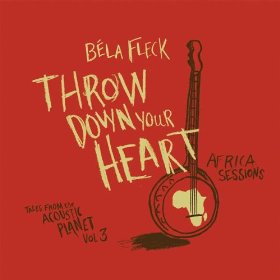 Bela Fleck: Throw Down Your Heart: Tales From the Acoustic Planet, Vol. 3 -Africa Sessions
Bela Fleck: Throw Down Your Heart: Tales From the Acoustic Planet, Vol. 3 -Africa Sessions Lands & Peoples: Lands & Peoples EP
Lands & Peoples: Lands & Peoples EP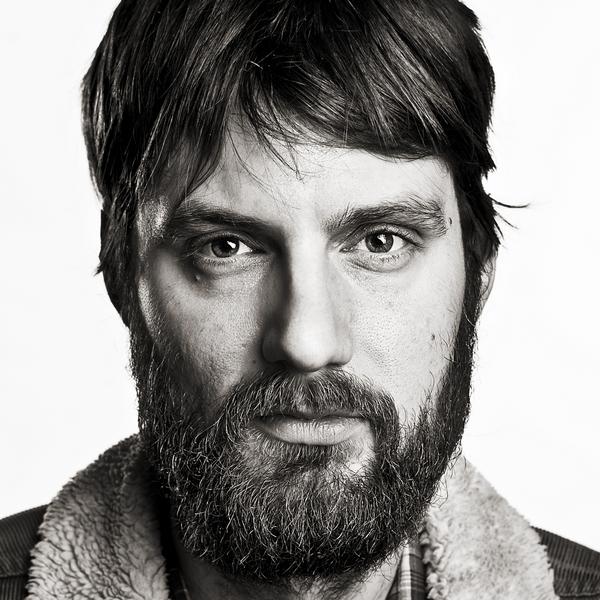 Caleb Stine: Eyes So Strong and Clean
Caleb Stine: Eyes So Strong and Clean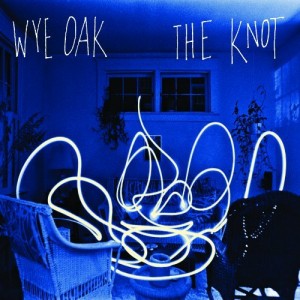 Wye Oak: The Knot
Wye Oak: The Knot Pontiak: Maker
Pontiak: Maker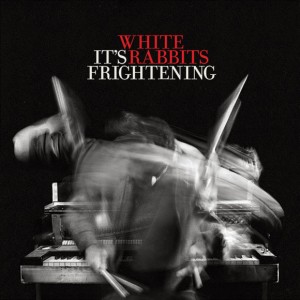 White Rabbits: It's Frightening
White Rabbits: It's Frightening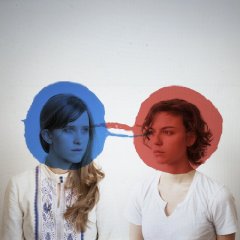 Dirty Projectors: Bitte Orca
Dirty Projectors: Bitte Orca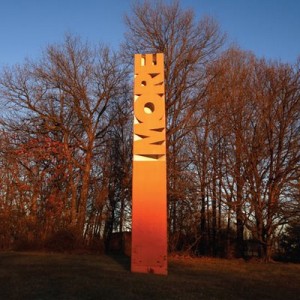 Double Dagger: More
Double Dagger: More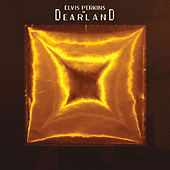 Elvis Perkins in Dearland: Elvis Perkins in Dearland
Elvis Perkins in Dearland: Elvis Perkins in Dearland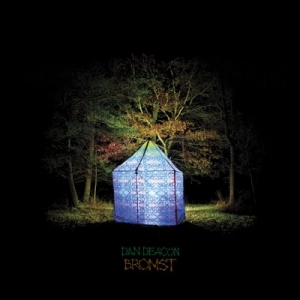 Dan Deacon: Bromst
Dan Deacon: Bromst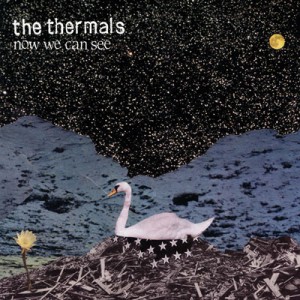 The Thermals: Now We Can See
The Thermals: Now We Can See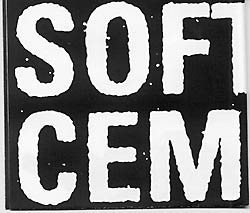 Soft Cement: Think About It EP
Soft Cement: Think About It EP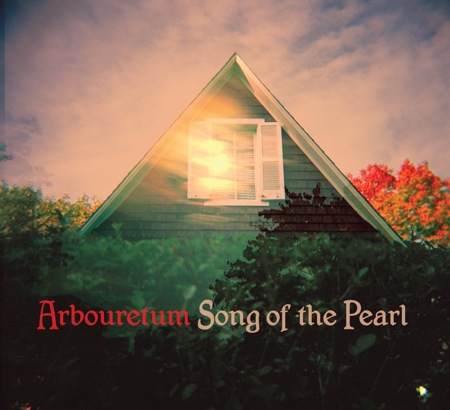 Arbouretum: Song of the Pearl
Arbouretum: Song of the Pearl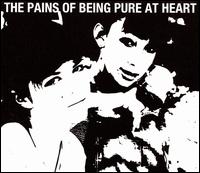 The Pains of Being Pure at Heart: The Pains of Being Pure at Heart
The Pains of Being Pure at Heart: The Pains of Being Pure at Heart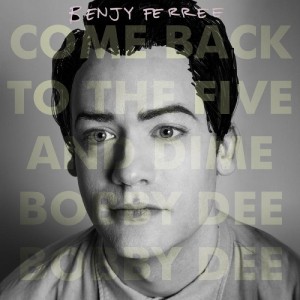 Benjy Ferree: Come Back to the Five and Dime, Bobby Dee Bobby Dee
Benjy Ferree: Come Back to the Five and Dime, Bobby Dee Bobby Dee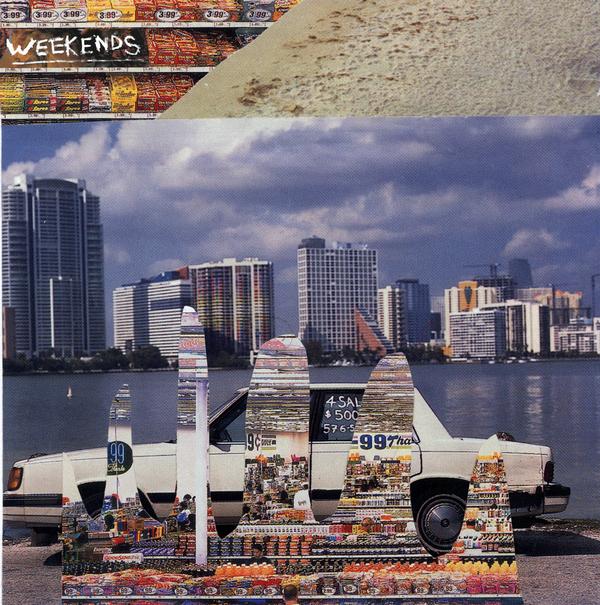 Weekends: Weekends
Weekends: Weekends Height With Friends: Baltimore Highlands 12" LP, Limited-Run Vinyl Only
Height With Friends: Baltimore Highlands 12" LP, Limited-Run Vinyl Only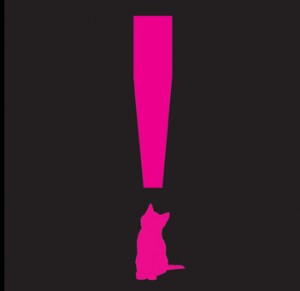 Caverns: Kittens! EP
Caverns: Kittens! EP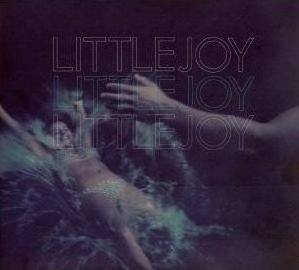 Little Joy: Little Joy
Little Joy: Little Joy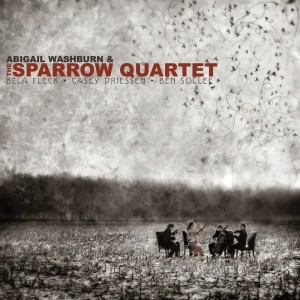 Abigail Washburn & the Sparrow Quartet:Abigail Washburn & the Sparrow Quartet
Abigail Washburn & the Sparrow Quartet:Abigail Washburn & the Sparrow Quartet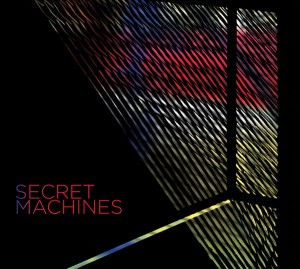 The Secret Machines: Secret Machines
The Secret Machines: Secret Machines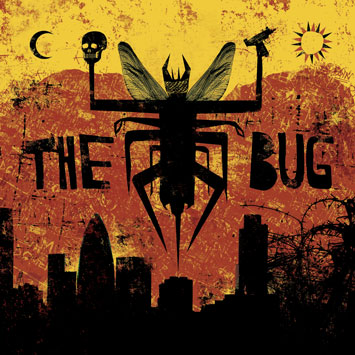 The Bug: LondonZoo
The Bug: LondonZoo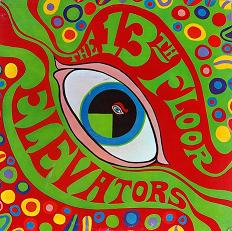 13th Floor Elevators: Psychedelic Sounds of the 13th Floor Elevators (Vinyl Mono LP only)
13th Floor Elevators: Psychedelic Sounds of the 13th Floor Elevators (Vinyl Mono LP only)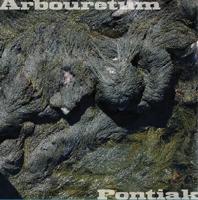 Arbouretum/Pontiak: Kale (Vinyl LP only)
Arbouretum/Pontiak: Kale (Vinyl LP only) Small Sur: We Live in Houses Made of Wood
Small Sur: We Live in Houses Made of Wood AbeVigoda: Skeleton
AbeVigoda: Skeleton ImperialChina: Methods: EP
ImperialChina: Methods: EP
[...] if they have any fried dough. Instead, we recommend you check out the excellent write-ups over at Aural States and the Midnight Sun Blog while we sit around the beer garden and watch the co-eds be all, um, [...]
[...] if they have any fried dough. Instead, we recommend you check out the excellent write-ups over at Aural States and the Midnight Sun Blog while we sit around the beer garden and watch the co-eds be all, um, [...]